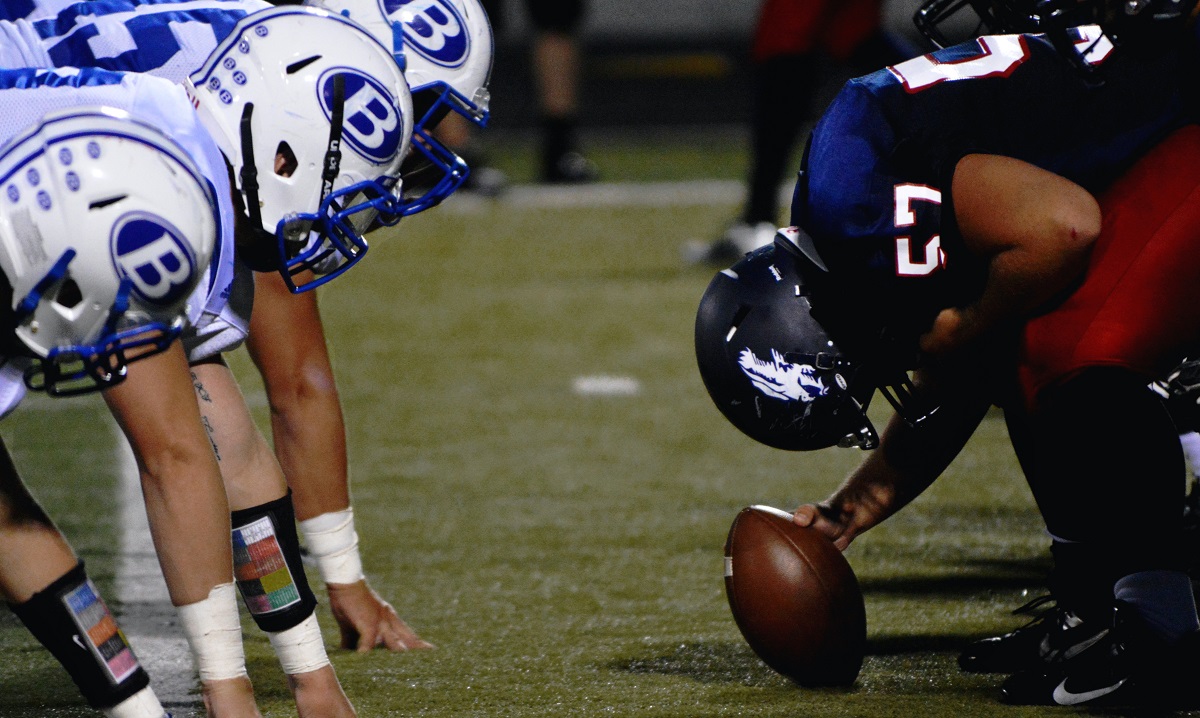Tips for Balancing Academics and Extracurriculars
Being a student can be challenging, juggling academics and extracurricular activities can be overwhelming. Achieving academic success while maintaining a balanced lifestyle requires effective time management, commitment, and proper planning.
In this article, we will provide you with tips for balancing academics and extracurricular activities. We will explore how to assess your academic workload, choose the right extracurricular activities, and create a schedule that allows you to stay on track. We’ll also provide effective time management strategies and highlight the importance of communication, self-care, seeking support, and being flexible.
Key Takeaways
- Balancing academics and extracurricular activities requires effective time management and commitment.
- Assessing your academic workload and choosing the right extracurricular activities can help maintain a balanced lifestyle.
- Creating a schedule and utilizing effective time management strategies can help you achieve academic success while still pursuing extracurricular activities.
- Open communication, self-care, seeking support, and being flexible are essential for balancing academics and extracurricular activities.
- Remember to prioritize what is most important to you and always strive for a healthy work-life balance.
Understanding Your Priorities
Contents
- 1 Understanding Your Priorities
- 2 Assessing Your Academic Workload
- 3 Choosing the Right Extracurricular Activities
- 4 Creating a Schedule
- 5 Effective Time Management Strategies
- 6 Communication and Collaboration
- 7 Prioritizing Self-Care
- 8 Seeking Support
- 9 Flexibility and Adaptability
- 10 Tips for Balancing Academics and Extracurriculars
- 11 FAQ
As a student, it’s essential to understand your priorities to balance your academics and extracurricular activities successfully. Time management is key to achieving academic success and maintaining a healthy work-life balance. To do this, you need to identify what’s most important to you and plan accordingly.
Setting Your Priorities
Start by making a list of your academic and extracurricular responsibilities. Then, rank them in order of importance to you. Use this list to determine how much time you’ll give to each activity, and be realistic about the time commitment required to achieve your goals.
Remember, you don’t have to do everything. Choose the activities that align with your interests and goals, and commit to them wholeheartedly.
Balancing Academics and Extracurriculars
Creating a Time Management Plan
Create a schedule that works for you, and plan ahead to avoid last-minute stress. Use a planner or calendar to keep track of deadlines, assignments, and extracurricular events. Make a habit of reviewing your schedule regularly, and adjust as needed.
Learning to Say “No”
It’s okay to say “no” to certain activities or commitments if they take too much time away from your priorities. Remember that your time is valuable, and choosing carefully how to use it will help you achieve your goals and maintain a balanced lifestyle.
By understanding your priorities and managing your time effectively, you can strike a balance that allows you to succeed academically and enjoy a fulfilling extracurricular life.
Assessing Your Academic Workload
As you begin to balance your academics and extracurricular activities, the first step is to assess your academic workload. This involves understanding the amount of time and effort required for each of your classes, assignments, and exams. By doing so, you can determine the time commitment required for your extracurricular activities and plan your schedule accordingly.
One effective way to assess your academic workload is to create a weekly or monthly study schedule. This should include all of your classes, as well as any upcoming assignments or exams. By breaking down your workload into manageable tasks, you can ensure that you stay on track and avoid feeling overwhelmed.
| Class | Time Required |
|---|---|
| English | 4 hours per week |
| Mathematics | 6 hours per week |
| History | 3 hours per week |
| Science | 5 hours per week |
| Foreign Language | 2 hours per week |
| Elective | 2 hours per week |
Additionally, it’s important to consider the expectations and requirements of your extracurricular activities. Some activities may require daily or weekly time commitments, while others may be more flexible. By understanding these expectations, you can determine whether or not the activity is a good fit for your schedule.
Creating a balanced lifestyle involves finding a way to manage your academic workload and extracurricular activities without sacrificing your personal well-being. While it may be tempting to take on more than you can handle, it’s important to be honest with yourself about your limitations. By prioritizing your time and committing to a realistic schedule, you can achieve success both academically and personally.
Choosing the Right Extracurricular Activities
When it comes to extracurricular activities, selecting the right ones can make a significant difference in your academic success and overall satisfaction with your college experience. However, it’s essential to consider the time commitment required for each activity and ensure that they align with your personal and academic goals. Here are some tips for choosing the right extracurricular activities:
- Identify your interests: Consider the activities that you are passionate about and would like to participate in. Look for clubs or organizations that align with your hobbies, interests, or career goals. This way, you will enjoy the time spent on extracurricular activities, and they can contribute to personal achievements.
- Assess the time commitment: Determine the amount of time required for each activity and evaluate whether you can balance it with your academic workload. Remember that you can always start with one activity and gradually increase your involvement as you become more comfortable with the time commitment.
- Consider the benefits: Some extracurricular activities can enhance your academic achievements and help you build your resume. For example, participating in a research project or a volunteer organization can develop valuable skills and experience that will be useful in your future career.
- Find a balance: Consider balancing your extracurricular activities between academic and non-academic pursuits. For example, if you are a science major, you can participate in a music club or a sport team to add some variety to your college experience.
- Get involved: Attend club meetings, participate in events, and engage with other members of the organization. This way, you can build networks and make friends while improving your skills.
By choosing the right extracurricular activities, you can contribute to your personal growth and academic success while enjoying a well-rounded college experience. Always remember to assess the time commitment required and maintain a balance between academics and extracurricular activities to avoid burnout and ensure a fulfilling college experience.
Creating a Schedule
Managing your time effectively is crucial for balancing academics and extracurricular activities. One useful way to do this is by creating a schedule that prioritizes your tasks and allows for flexibility.
Start by breaking down your academic workload into smaller, manageable tasks. This will help you avoid feeling overwhelmed and ensure that you can complete your assignments on time. Then, consider the time commitment required for your extracurricular activities and schedule them around your academic responsibilities.
It’s important to prioritize tasks based on deadlines and importance. Consider using a planner or digital calendar to keep track of your schedule and avoid overcommitting yourself. Time blocking is another effective technique to ensure that you have enough time for both academics and extracurriculars.
Remember, your schedule should be adaptable and allow for unexpected events. It’s important to be realistic about your time and avoid scheduling too many tasks in one day. By creating a balanced schedule, you can achieve academic success while still enjoying your extracurricular activities.
Effective Time Management Strategies
To achieve academic success while also participating in extracurricular activities and maintaining a balanced lifestyle, effective time management is essential. Here are some strategies to help you manage your time efficiently:
- Set SMART goals: Setting Specific, Measurable, Achievable, Relevant, and Time-bound goals can help you stay focused and motivated.
- Use a planner or scheduling app: Write down all your deadlines, meetings, and assignments in a planner or use a scheduling app to keep track of your tasks and commitments.
- Prioritize your tasks: Prioritizing your tasks based on their level of importance and urgency can help you tackle them in a systematic and effective manner.
- Avoid multitasking: Focus on one task at a time to increase your concentration and productivity.
- Take breaks: Taking short breaks in between tasks can help you recharge and refocus.
- Avoid procrastination: Procrastination can lead to stress and anxiety. Break down large tasks into smaller ones and tackle them one at a time.
- Use productivity tools: Tools such as the Pomodoro technique or time-tracking apps can help you manage your time more efficiently and boost your productivity.
Remember, effective time management is not just about getting more things done in less time but also about achieving a balanced lifestyle that includes self-care, rest, and relaxation. By implementing these strategies, you can create a schedule that allows you to excel academically while also pursuing your passions and interests.
Communication and Collaboration
Effective communication and collaboration are essential skills for balancing academics and extracurricular activities. By maintaining open communication with teachers, coaches, and peers, you can better manage your time and avoid conflicts between your academic responsibilities and extracurricular commitments.
Make sure your teachers and coaches are aware of your extracurricular activities and the time commitment required. This can help them provide the necessary support and flexibility to ensure you can balance both effectively. Additionally, discussing any challenges or conflicts with your teachers and coaches can help you find solutions that work for everyone.
Collaborating with your peers can also be beneficial. Consider creating study groups with classmates who are involved in similar extracurricular activities. This can help you stay on top of your academic workload while still being able to participate in your chosen activities.
Remember that effective communication and collaboration requires mutual respect and understanding. Be sure to listen actively to the needs and concerns of others and be willing to compromise when necessary.
Effective communication and collaboration are essential for balancing academics and extracurricular activities, ensuring that you can achieve academic success while still pursuing your interests.
Prioritizing Self-Care
While academics and extracurricular activities are essential for success, it’s important not to neglect your well-being. Prioritizing self-care can help you maintain a work-life balance and achieve a more balanced lifestyle. Here are a few tips to help you get started:
- Take breaks: Make sure to schedule breaks throughout the day to rest and recharge. This can include taking a walk, reading a book, or practicing mindfulness.
- Get enough sleep: Lack of sleep can negatively impact your academic performance and overall health. Make sure to prioritize getting enough sleep each night.
- Eat well: Eating a healthy, balanced diet can help you stay focused and energized throughout the day. Make sure to prioritize nutritious meals and snacks.
- Exercise regularly: Regular exercise can help reduce stress and improve overall well-being. Make sure to prioritize physical activity, even if it’s just a short walk or stretching session.
Remember, taking care of yourself is an essential part of achieving academic success and maintaining a balanced lifestyle.
Seeking Support
It’s essential to seek support when juggling academic success and extracurricular activities. It’s important to remember that you are not alone, and there are resources available to help you manage your workload and achieve a balanced lifestyle.
One of the most significant sources of support is your teachers and mentors. They can provide guidance and advice on time management and balancing academic and extracurricular commitments. They can also help you set realistic goals and identify strategies to achieve them.
Additionally, peers who are also involved in extracurricular activities can offer invaluable support. They understand the challenges of balancing academics and extracurriculars and can provide helpful tips and advice based on their experiences.
Finally, it’s essential to seek support from your family and friends. They can offer emotional support and encouragement, which is essential for maintaining a balanced lifestyle.
Remember, seeking support isn’t a sign of weakness; it’s a sign of strength and a commitment to your academic success and well-being.

College Academics and Extracurriculars
Flexibility and Adaptability
When it comes to balancing academics and extracurricular activities, it’s important to remain flexible and adaptable. Unexpected events, last-minute assignments, and changes in your schedule can all impact your time management, academic success, and overall balanced lifestyle.
One strategy for staying flexible is to have a contingency plan in place. This might involve setting aside extra time in your schedule for unexpected assignments or creating a study group with peers who can step in and help out when necessary. Additionally, it’s important to be willing to adjust your schedule if needed. This might mean prioritizing one activity over another or re-arranging your schedule to accommodate an unexpected event.
It’s also important to cultivate a growth mindset when it comes to challenges. Rather than viewing setbacks as failures, try to see them as opportunities for growth and learning. This can help you remain motivated and focused, even when faced with unexpected obstacles.
Tips for Flexibility and Adaptability:
- Have a contingency plan in place for unexpected events or assignments.
- Be willing to adjust your schedule when necessary.
- Cultivate a growth mindset and view setbacks as opportunities for learning.
By remaining flexible and adaptable, you can better manage your time, achieve academic success, and maintain a balanced lifestyle. Remember to stay focused on your priorities and be willing to make adjustments as needed.
Tips for Balancing Academics and Extracurriculars
Managing academics and extracurricular activities can be a challenging task for many students. It requires excellent time management, prioritization of tasks, and a balanced lifestyle. Balancing academics and extracurriculars is crucial for maintaining academic success, achieving student achievements, and preventing burnout. In this article, we have discussed several tips to help students balance their academics and extracurricular activities and create a more balanced lifestyle.
Conclusion
In conclusion, balancing academics and extracurricular activities is essential for student success and a more balanced lifestyle. By understanding your priorities, assessing your academic workload, and choosing the right extracurricular activities, students can manage their time effectively. Creating a schedule, prioritizing self-care, and seeking support when needed can also help students maintain a balanced lifestyle and prevent burnout. Flexibility and adaptability are also crucial when unexpected challenges arise. By using these tips, students can achieve academic success while still enjoying their extracurricular activities and maintaining a healthy work-life balance.
Remember that balancing academics and extracurriculars requires effort, dedication, and discipline. But with the right mindset and strategies, it is possible to achieve success in all areas of your life.
FAQ
What is the importance of balancing academics and extracurricular activities?
Balancing academics and extracurricular activities is important for achieving academic success while also developing important life skills and pursuing personal interests.
How can I understand my priorities?
Understanding your priorities involves identifying what is most important to you and aligning your time and energy accordingly. This can be done by assessing your values, goals, and commitments.
How do I assess my academic workload?
Assessing your academic workload requires understanding the time commitment required for each class and assignment. It involves organizing your tasks, setting realistic goals, and managing your time effectively.
What factors should I consider when choosing extracurricular activities?
When choosing extracurricular activities, consider your interests, goals, and the time commitment required. It is important to select activities that align with your passions and contribute to your personal and academic achievements.
How can I create a schedule that balances academics and extracurricular activities?
Creating a schedule involves prioritizing tasks, setting specific time blocks for different activities, and utilizing time management techniques such as goal-setting and task prioritization.
What are some effective time management strategies?
Effective time management strategies include setting clear goals, avoiding procrastination, breaking tasks into smaller manageable chunks, and utilizing productivity tools such as calendars and to-do lists.
How can communication and collaboration help me balance academics and extracurricular activities?
Open communication and collaboration with teachers, coaches, and peers can help you manage your time effectively, address any conflicts, and seek support when needed.
Why is prioritizing self-care important?
Prioritizing self-care is crucial for maintaining a healthy work-life balance and preventing burnout. It involves taking time for relaxation, exercise, and social activities to recharge and maintain overall well-being.
How can I seek support when balancing academics and extracurricular activities?
Seeking support from teachers, mentors, and peers can provide guidance, advice, and resources to help you maintain a balanced lifestyle. Don’t be afraid to reach out and ask for help when needed.
How should I handle unexpected challenges when balancing academics and extracurricular activities?
Flexibility and adaptability are key when facing unexpected challenges. Learn to adjust your schedule, prioritize tasks, and utilize problem-solving skills to effectively manage any obstacles that arise.
Balancing Academics And Extracurricular Activities, Time Management For Students, Prioritizing School And Hobbies, Achieving Work-Life Balance In Student Life, Tips For Managing Academics And Extracurriculars, Finding A Balance Between School And Activities, Maintaining Good Grades While Participating In Extracurriculars, Strategies For Juggling Academics And After-School Programs, How To Excel Academically And Engage In Extracurriculars, Balancing Commitments As A Student




0 Comments